A Choice of Secrets
A Dark Glass Novel Book 4
by Barb Hendee
Genre: Historical Fantasy
Ever since raiders from the north began attacking villages, Lady Nicole Montagna has known that defending her people would come at a cost. The betrothal of her sister Chloe to a neighboring lord seems the perfect solution, forging a powerful alliance. But shortly before the wedding, Nicole is shocked to discover that her sister is with child—and not by her husband-to-be. Now she must make a choice. She has just hours to decide . . .
~Should she tell her soldier brother—who will take swift, ruthless action to ensure the family’s safety?
~Should she hold her tongue, let her sister deceive her husband into believing the child is his—and then hope Chloe can get away with the lie?
~Should she tell her family, hoping they will know the right thing to do?
With the help of a magic mirror, Nicole lives out each path, fighting to protect herself and those she loves with the weapons she has: wits, herbs, and fortitude. But no matter her cleverness, neither she nor her family can escape unscathed—for there are repercussions she could never have foreseen, involving her own heart . . .
A CHOICE OF SECRETS
New York Times bestselling author Barb Hendee spins a tale of intrigue, integrity, and the bonds of love and loyalty as one young woman finds her place in a turbulent world . . .
Amazon * Apple * B&N * Google * Kobo * Amazon Uk
Chapter 1
At the age of seventeen, I had no real understanding of the danger of secrets…of keeping them, of sharing them, of telling the wrong person for the right reasons.
But I was soon to learn the depths of my own ignorance.
One afternoon, in mid-summer, I was in the vast kitchen of my family home, with six other women, rolling dough for both peach and strawberry tarts. One of our housemaids, Jenny, stuck her head in the back door. “Lady Nicole,” she said to me. “Lord Erik and Lord Christophe have arrived. They’re in the hunting hall.”
This news made me smile. “Does Lady Chloe know? Or my mother and father?”
“Not yet. I’ll go and find them.”
“Thank you.”
Not bothering to even take off my apron or shake the flour from my hair, I hurried out the door and into the open-air center of what was known as White Deer Lodge. All around me, ten large log buildings had been constructed in a circle. Small paths connected each building to the next. Two of the constructions functioned as our family’s residence. Others housed guests or servants or our guards. One was designated for storage. The largest construction was called the gathering hall for communal events. On the outside of this circle, a village thrived, with dwellings, shops, stables, and a smithy.
A stone wall surrounded the village, and heavy forests surrounded three sides of the wall, but not far beyond the west side, the ocean stretched down the coast of the nation of Samourè. This lodge was my home and my father, Gideon Montagna, was lord of these lands.
In that moment, though, I gave little thought to my home or my father, and instead, I continued in my quick pace to the smallest of the log buildings—known as the hunting hall. I’d never cared much for this hall, as it was decorated with spears, longbows, and the heads of animals. But nonetheless, once inside the front door, I looked toward the unlit great hearth with a flood of happiness rising inside me.
A Girl of White Winter
A Dark Glass Novel Book #3
Kara, as a ward with no parentage and no future, has been raised knowing nothing outside her lady’s chambers. Until Royce Capello, a visiting nobleman, is struck by her ice-pale looks, and demands her as payment for the land the family needs.
With barely time to protest, Kara is sold and packed off for a life as a concubine—until a raiding party descends on Royce’s company and she’s kidnapped for the second time in as many days.
Whatever happens, Kara will be alone in the world, inexperienced and fearing even the vast unfamiliar sky. But one raider gives her a choice—and a magic mirror appears to show her where each path will lead…
She can leave with her protector Raven and journey with his performing troupe, competing for his mercurial affections.
She can flee the raiders’ settlement, and return to Royce’s manor, chattel among devious nobility.
Or she can stay in the settlement, bound to firm, silent Caine, who is as gentle as he is staid and inscrutable.
Her fates twist and turn to affect far more than she could have guessed, tangling the bitter with the sweet—and Kara must choose which consequences she can live with…
Amazon * Apple * B&N * Google * Kobo
Crouched in a corner, in the darkness, I sat with my arms wrapped around my knees, longing for someone to come and fearing someone would come. The night was cold, and even in my cloak, I’d begun to shiver when a familiar voice sounded out back.
“Put down the tray and unbolt the door. I’ll take it in myself.”
Raven.
Relief flooded through me. I didn’t know him any more than I knew Caine, but he had talked to me more, and last night, he’d made me a private bed up on the wagon.
The door opened, and moonlight filtered in. Raven stood there with an armload of firewood. I never saw who was with him because he turned his head and said, “Go home. I can manage from here.”
Striding in, he glanced at me once before walking to the hearth and arranging the logs. A flint appeared in his hand, and he used it to build a fire. I was even more grateful for the light than the heat.
Once the flames had taken, he went back to the door and returned with a wooden tray. A savory scent wafted upward as he knelt in front of me.
The tray contained a bowl, a spoon, and a tin cup.
“Vegetable stew with gravy,” he said. “Go ahead and eat. I know you’re hungry.”
I was famished, but Lady Giselle had always impressed the importance not showing any rush when eating. It was the height of poor manners.
“Thank you,” I whispered, reaching slowly and picking up the bowl, taking a small bite of potato. Then I took a sip of water from the cup.
He watched me.
“I’m sorry,” he said.
His unexpected apology made me brave. “What does Caine want with me?”
“I don’t know. I’ve asked him, but he won’t tell me. He’s speaking to our grandfather now.”
I’d heard the word “grandfather” from one or both of them before. “Is Caine your brother?”
Raven nodded. “So is Logan. He’s the eldest. I’m the youngest.”
Absorbing this news, I took another small bite and swallowed it. “Caine called me his property.”
“I know he did. I heard him.” He studied my face. “But you don’t need to worry. He won’t sell you, and he won’t hurt you. I promise.”
“Why did he bring me here?”
Raven hesitated. “I told you I don’t know…but Caine is a man who believes in fate and in prophecies.”
“And you don’t?”
“I believe in choices.” He stood up. “And I don’t like this. I don’t like you being locked in here, and I don’t like you losing control over your own decisions.”
His words washed over me. I’d never heard anyone talk like this before. I’d never thought about having choices.
He crouched again. “My people all used to be travelers. We traveled the kingdoms as we pleased, never settling anywhere, but that life grew hard for some of us, and my grandfather founded this place. The location makes it safe, and some of us, like Logan and Caine, prefer to grow food and live here year-round.” Tilting his head, he added, “But some of us don’t.”
“What do you mean?”
“I have a troupe who travels with me from village to town, putting on shows to earn money, living as we please. We come back here in autumn so I can help with some of the raiding parties. Then we leave for a few months and come here again for the hard part of winter.”
I wanted to ask more about the term “raiding parties” but had a feeling he was trying to convey something more important.
“My troupe leaves in the morning,” he said.
For some reason, this news brought a fresh wave of fear. He was the only one who really talked to me. And he was leaving in the morning? Standing up again, he walked to the door.
“But for now, I’m going to head back to the common house and see how Grandfather is faring with Caine.” He paused. “I’m not going to lock the door.”
Setting down the bowl, I stood as well. Firelight reflected off the side of his face.
“The way I see it,” he went on, “you have three options. While everyone is distracted, you could slip out of here tonight. No one guards the mouth of the chute. On foot, in the dark, you could press close to the near wall of the chute and make your way down with no one up above on watch seeing you.”
My breaths quickened in fear at the thought of trying to flee this place and make it back to de Marco lands, to my lady, on my own.
“Or,” he said. “You can stay here and take your chances and find out what Caine wants.”
“Or?” I whispered.
“Or…you could come on the road with me.” He amended quickly. “I mean with us, with my troupe. You’d belong to yourself, but you could travel with us.”
A wild rush of hope rose up. “Could you take me home, to the de Marco manor?”
“No. Only small raiding groups of men ever go north into those estate lands. I won’t risk any of my people. We’re heading east. If you want to go back, you’re on your own.”
Despair replaced hope. His refusal had been swift and final.
But another thought occurred. “I couldn’t go with you if I wished to. Caine would never allow it.”
“He would if I asked him. He owes me…or thinks he does. I’ve never asked him for anything, but I’d ask him for this, and he wouldn’t refuse.”
I was moved that Raven would use up a favor to help me, but I also feared the prospect of joining a troupe of strangers traveling east, farther from my home.
He watched me a few moments longer.
“Choices are all that matter in this life,” he said. “And we have to be free to make our own. You think on this, and I’ll be back before dawn. If you’re gone, I’ll know you chose to run. If you’re here, you can tell me what you’ve decided.” He walked out. “I won’t lock the door.”
But he closed it.
I was alone again.
A Choice of Crowns
A Dark Glass Novel Book #2
Olivia Geroux knew her king was reluctant to marry her, whatever the negotiations had arranged. But she never expected to find handsome, arrogant King Rowan obsessed with his stepsister instead. And before she can determine what course to take, she overhears her greatest ally plotting to murder the princess.
Olivia must act quickly—and live with whatever chaos results. As the assassin hunts his prey, a magic mirror appears to show Olivia the three paths that open before her . . .
If she hesitates only a moment, the princess will die—and she will become queen.
If she calls for help, she will gain great power—but she must also thrust away her own happiness.
If she runs to stop the murder herself, she will know love and contentment—but her whole country will suffer.
As she lives out each path, her wits and courage will be tested as she fights to protect her people, her friends, and her heart. And deciding which to follow will be far from easy . . .
I’ve heard it said the most important moments in one’s life pass more swiftly than others. Perhaps it’s true.
I only know that all my senses were on alert as soon as my father sent for me, asking me to come to his private rooms. Eighteen years old, I’d never once been invited to his rooms. In the past several weeks, he’d been closeted away much of the time, sending and receiving messages, but I had no idea what this was about—as he didn’t see fit to share such intelligence with me.
Now…he wanted to see me, in his rooms?
I could hardly refuse, nor in fact did I want to. I was curious.
Gathering my long green skirt, I nodded curtly to the servant who’d delivered the message and made my way to the base of the east tower of our family keep. I knew exactly where his rooms were located, even if I’d never been inside.
Upon arriving, I stood with my back straight and knocked on the door.
“Father? You sent for me.”
“Come,” he said from the other side.
With my hand shaking only slightly, I opened the door. Inside, I found a somewhat austere main room that appeared to be a study, with a large desk and chair. There were tapestries of forest scenes on the walls, and an interior door led to a bedroom.
My father, Hugh Géroux, sat behind his desk working on what appeared to be a letter, but he stood as I entered. In his early fifties, he still cut a striking figure, with a smooth-shaven face, dark hair with a sprinkling of gray, and dark eyes.
“Olivia,” he said, as if meeting me for the first time.
We didn’t know each other well, as I was the fifth and youngest of his children. I had two older brothers and two older sisters, and my father had used all four of them carefully to enhance his own wealth and prestige. My mother died of a fever when I was only seven, so my father raised us alone in a manner that was both distant and overbearing at the same time.
My family, the line of Géroux, was among the old nobility of the kingdom. While past famines and civil wars had destroyed several of the ancient families, ours survived. We were survivors. My father respected strength and nothing else.
His eyes moved dispassionately from my feet to my face, as if assessing me. I knew only too well what he saw. I was tall for a woman. He was tall, and I could almost look him directly in the eyes. Unfortunately, the current fashion for women was petite and fragile. My hair was long and thick, but it was a shade of burnished red, and again, red hair was not currently in fashion.
Still, I’d been raised to remain sharply aware of everything going on around me, and it was no secret that most men found me desirable. My face had often been called pretty, with clear skin and slanted eyes of green. I looked best in green velvet.
Though I was not vain, I had also been raised to understand that survival was based on value, and at some point, I’d be given a chance to prove myself valuable. Had that chance finally come?
“You’ll need to pack tonight,” he said. “You leave for Partheney in the morning.”
In spite of my careful awareness of self-control, I nearly gasped. “Partheney?”
This was the king’s city. My family’s lands were in the southeast corner of the kingdom. Partheney was in the northwest, near the coast of the sea. I had never been there.
“You’re to marry King Rowan,” my father said flatly. “His mother, the dowager queen, and I have arranged it.”
I stood still as his words began to sink in, but I still couldn’t quite follow what he was trying to convey. “King Rowan…the dowager queen…is this why you’ve been receiving so many messages?”
His eyes flashed, and I dropped my gaze, cursing myself. Father did not brook questions from his children. He expected only two things from us: strength and obedience. But the slight shaking in my hands grew to a tremble. Had I heard him correctly? I was to marry the king?
Stepping around the desk, he approached me. “Do you know anything of the rumors surrounding King Rowan?”
Unfortunately, I did, hence the reason my hands trembled. Even here, in the isolated southeast, rumors still reached us. In his late twenties, Rowan de Blaise was a young king and had held the throne for only two years. But over those two years, four betrothals with foreign princesses had been arranged via proxy. Envoys had been sent to Partheney to finalize negotiations. In all four cases, when the envoys arrived, Rowan refused to even see them. He’d sent them away.
“I know some of the stories,” I answered my father. “I know betrothals have been arranged, and he’s sent the envoys packing.”
“Yes.” My father nodded. “His mother, the dowager, was the one who arranged the betrothals. She is anxious to see him married and founding a line of heirs.”
“Why will he not marry?”
My father waved one hand in the air. “That is of no matter. What matters is, the dowager has decided to stop seeking a foreign princess and marry him into one of our own noble families. She’s wise and has chosen the line of Géroux. We’ll be linked to royalty, and I’ll be the grandfather of kings.”
The truth of all this hit me, and my hands ceased trembling. I would be queen.
Clearly there were obstacles, but I allowed my initial worries to vanish and let my mind flow. Father expected complete success from himself and would expect nothing less of me. This thought made me brave. “If Rowan has refused to even see the envoys,” I began, “what makes you and the dowager think he will agree to entertain negotiations this time?”
My question was bold, but instead of growing angry, Father only looked at me as if I were simple—which I was not.
“Because as I said, you will leave in the morning,” he answered. “I’m not sending envoys. I have no faith in envoys. I’m sending you. You’ll go to the castle, meet the king, and handle negotiations yourself. You are a daughter of the Géroux. He cannot turn you away.”
“You’ll not come with me?”
“No. That was my first instinct, but the dowager believes it best if the king is given no choice in facing you directly. It will force him to be…polite.” His expression darkened. “And you will not fail to secure him. Do you understand? You will not fail.”
I met his eyes without flinching.
“I understand.”
Through a Dark Glass
A Dark Glass Novel Book 1
On her seventeenth birthday, Megan of Chaumont discovers she’ll be sold as a bride to the brutish Volodane family—within hours. Her father grants only that she may choose which one of the ruthless, grasping lord's three sons she weds:
Rolf, the eldest: stern, ambitious, and loyal?
Sebastian, the second son: sympathetic, sly, and rebellious?
Or Kai, the youngest: bitter, brooding, and proud?
As shy, horrified Megan flees the welcome dinner for her in-laws-to-be, she finds an enchanted mirror that will display how her life unrolls with each man, as if she were living it out in a breath. But there is no smooth “happily ever after” in her choices.
Deaths and honors, joys and agonies, intrigues and escapes await her in a remote, ramshackle keep, where these rough but complex men reveal one side and then another of their jagged characters—and bring forth new aspects of Megan, too. But the decisions of one teenaged marriage-pawn reverberate much farther than any of them have guessed . . .
I looked nothing like myself. Miriam had arranged my hair even more elaborately and used a small round iron on the curls around my face. Then she’d put touches of black kohl at the corners of my eyes. I wore an amber silk gown with a low, square-cut neckline that showed the tops of my breasts. I don’t know where she’d found the gown. It wasn’t mine, and it was much too small to have fit Helena. I supposed my mother must have had it made at some point while anticipating its need.
However, at the sight of me, my father beamed. I couldn’t meet his eyes. Seating at dinner was equally awkward with my father at the head of the table, my mother and I seated on one side, and all four of the Volodanes seated on the other—so I had no choice but to look at one of them when I raised my eyes from my plate of roasted pheasant.
None of them had changed for dinner, and with the exception of Sebastian, they all wore armor and swords. Jarrod hadn’t bothered to shave his face and sported a dark stubble. I could almost feel my mother’s discomfort, but she smiled and made attempts at polite conversation.
Only Sebastian responded to her questions about weather and wild flowers in the northern provinces. Rolf spoke only to his father or mine. Occasionally, he glanced at me as if I already belonged to him. I wasn’t listening to any of them. My heart pounded too loudly in my ears. But then I did hear Rolf say something about heading back north as soon as he and I were married.
A long pause followed, and for the first time, I paid attention.
“It is not settled yet that she will marry you,” my father finally responded. “Per our agreement, Megan will choose for herself.”
Rolf’s face clouded. “I never agreed to that. I am the eldest. She will join with me.”
Jarrod turned in his chair. “You’ll do as I tell you! Nothing less and nothing more!”
Mother, Father, and I all flinched at his tone and his unthinkable manner at the table. Rolf’s face went red, and Sebastian leaned back his chair, smiling. Something about him was beginning to strike me as sly. He clearly enjoyed his older brother’s chastisement and discomfort.
“Now, now,” he said, dryly. “We mustn’t seem uncouth.”
Kai ignored all this. He ignored everything but his surroundings. His eyes were light brown like mine, and they moved from the opulent tapestries on our walls to the peach roses in silver vases on the table to the porcelain plates and pewter goblets.
Then for the first time, he looked directly at me.
“I fear you’ll find the furnishings at Volodane Hall somewhat lacking,” he said.
His voice dripped with resentment, and I knew I’d not been wrong in my first assessment. He was angry.
His tone was not lost on my mother, who answered him with a strained smile. “Of course, we’ll be sending some household things with her, and Megan will give your hall a woman’s touch.”
These words made me wonder what had happened to Kai’s mother. I’d never asked and no one had mentioned this, but it seemed I would be the lady of their house. The very thought ensured I would not manage to eat another bite of dinner.
Kai studied my mother evenly and breathed out through his teeth. “Our hall won’t be good enough for her. Nothing of us or ours will be good enough.”
Then I realized the source of his anger. He resented the need for this bargain as much as we did. He knew that we—and most of the noble houses—looked down upon the Volodanes, and the last thing he probably wanted was a permanent reminder in his home of their lowly state in comparison to ours.
“Quit!” Jarrod ordered him, pounding one hand on the table. In obedience, Kai stopped talking and withdrew back inside himself, ignoring everyone again.
Sebastian looked at me and raised one eyebrow in amusement. I glanced away.
Somehow—and I never quite knew how—we made it through the rest of dinner.
By the time my mother rose, signifying the meal was over, my heart pounded in my ears again. I felt the edge of my self-control slipping away and knew that I had to gain a few moments to myself or I might possibly do or say something I’d later regret.
“Please make my excuses,” I said quietly to Mother. “I will return quickly.” She frowned briefly, but then her face smoothed in annoyed understanding, and I realized she most likely thought I needed to relieve myself. I didn’t care what she thought.
Turning, I fled the dining hall as fast as I could without running. Upon reaching the passage that led toward the kitchens, I couldn’t stop myself and broke into a run, racing in my heavy silk skirts until I reached an open archway in one side of the passage, just a few doors from the entrance to our kitchens.
There, I took refuge in an old, familiar hiding place.
As a child, I’d come to this storage room whenever I didn’t wish to be found. It was filled with crates, casks, and places to hide. No one ever entered except servants from the kitchens, and none of them ever noticed me secreted away behind a stack of crates.
I hadn’t come here in years, but now, I breathed in relief at the respite of solitude and the illusion of safety.
Slowly, I sank to my knees.
As we were expecting a delivery of goods any day now, the storage room was nearly half-empty. I didn’t even attempt to hide behind crates or casks, as I knew I’d have to return to the hall long before anyone came looking me. A dismal prospect.
What was I going to do? I couldn’t face the thought of my life married to any of those men. Until this afternoon, I’d never faced the prospect of marriage at all . . . but to one of them? I was not a weeper. My parents had never allowed such an indulgence, and I honestly wasn’t aware I knew how to cry, but tears came to my eyes and one dripped down my cheek. The water in my eyes made the following moment even more uncertain than it might have been.
The air in the storage room appeared to waver. Alarmed, I wiped away my tears, but the motion of the wavering air grew more rapid, and then...something solid began taking shape.
Jumping up to my feet, I gasped.
There, near the far wall across the storage room, a great three-paneled mirror now stood where there had been only empty air an instant before. The thick frames around each panel were of solid pewter, engraved in the image of climbing ivy vines. The glass of the panels was smooth and perfect, and yet I didn’t see myself looking back.
Instead, I found myself staring into the eyes of a lovely dark-haired woman in a black dress. Her face was pale and narrow, and she bore no expression at all. But there she was, inside the right panel gazing out me. Was I going mad? Had my parents driven me mad?
“There is nothing to fear,” the woman said in a hollow voice.
I doubted that statement. I feared for my sanity, but as yet, I’d not found my voice to answer her.
“You are at a crossroad,” she continued, “with three paths.” As she raised her arms, material from her long black sleeves hung down. “I am bidden to give you a gift.”
Here, sadness leaked into her voice, especially at the word “bidden,” and my mind began to race. Was this truly happening?
“You will live out three outcomes . . . to three different choices,” she said. “Lives with men . . . connected by blood. Then you will have the knowledge to know . . . to choose.”
I shook my head. “Wait! What are you saying?”
Lowering both hands to her sides, she said, “The first choice.”
Before I could speak again, the storage room vanished. Wild fear coursed through me as the world went black for the span of a breath, and then suddenly I found myself back in my family’s dining hall, only everything was different.
Chairs had been set up in rows, and guests were seated in them. I wore a gown of pale ivory and held my father’s arm as he walked me past the guests toward the far end of the hall. Flowers in tall vases graced that same end, and a local magistrate stood there with a book in his hands.
Beside the magistrate stood Rolf, wearing his armor and his sword.
Turning, he looked at me in grim determination.
He was waiting.
What’s Your Writing Process?
Normally, I avoid doing any type of “writerly” blog posts because for most people, they’re a good substitute for sleeping pills.
But . . . chatting about the human writing process is a little different. Nearly all of us write, whether it’s fiction, poetry, essays, letters, reports for work, etc. And everyone has a different process.
When I chose my major in college, people were shocked when I did not wish to go into teaching creative writing. Seriously. I’ve never taught a creative writing course. I did my master’s degree in composition theory, and I teach essay writing. The reason behind this is that I don’t have the first clue how to teach someone else to write fiction. It’s something that I “do,” but I don’t really understand it. I have a firm grasp of how to teach someone how to write an essay. I also spent years studying what goes on inside our minds as we attempt to write.
When you hear the phrase “writing process,” it can mean several different things. For one, we all have a personal writing process—meaning in reference to the way our brains and habits function. There are perfect drafters, binge writers, over-planners . . . procrastinators, etc. The list goes on.
I’m a firm believer that deadlines play into this process.
For example, my husband and writing partner, J.C. suffers from being a perfect drafter. He'll write a sentence and then stare at it. Something isn't quite right with that sentence. He'll change a few words--or maybe the order of the words--and then stare at the sentence again. Sometimes thirty minutes will go by, and he hasn't moved on to the next sentence. This is a stressful way to write, and these folks tend to start projects early if they are to meet a deadline.
Then there are procrastinators. These writers let the ideas churn and swirl inside their heads. They have been given two to three weeks to write a six-page project, and the ideas are still swirling twenty-four hours before the project is due, but not a word has been written. Ten hours before the project is due, they start drinking coffee like it's going out of style, and then they sit down and start hammering out words. They do get the project done, but they are often unhappy with it because it really needs to "cool" for a few days before quality revision can take place. But it's due and needs to be submitted.
Then, there are the over-planners. These writers love to do research and outlining. They will come up with a grand idea that excites them, and they will begin research. They also have two to three weeks for a project, but they spend most of that time doing research, taking notes, and outlining. They are having a fabulous time until they realize the project is due, and they haven't actually started writing yet.
I'm a "binge writer." I have a friend, another fiction writer named James Van Pelt, who is the complete opposite of me. He’s capable of getting up every day and writing three pages of a novel or story and then saving his work, closing the file, and going to work (he's also a teacher).
I am sooooooo jealous of him. I can't do that. With fiction, I have to become completely immersed (meaning “lost”) in a project. As a result, I only write fiction on breaks between college terms. But within a few days of starting a novel, I do nothing besides write from dawn to dark. This is a little hard J.C. because I'm also the cook in our house, and during those writing binges, we eat a lot of cereal, tuna sandwiches, and pizza.
But a few days into starting a novel, I'm getting up at 4:30 in the morning, making coffee, and pounding on keys. A Girl of White Winter is just over 80,000 words, and I wrote it in three and a half weeks. What’s more, I don’t remember writing it. I read it afterward, and I was very caught up in the story. It’s heart wrenching. Hah! But I don’t remember writing it.
This is not unusual. I’ve woken up to emails from students that read, “Barb, I finished the first draft of my essay last night at midnight. It’s on why Orca whales should not be kept in captivity. I got caught up in the topic, and I don’t remember writing it. But I just read it, and I think it’s pretty good. I’ve attached it here. Will you read it for me early and tell me what you think?”
I’m always glad to read projects early and give feedback, and I really understand what a student means when he or she says, “I don’t remember writing this.”
But the processes I list above are just several examples. What is your typical process? Think about this. Do you like your process? Or would you prefer to change it?
Barb Hendee is the New York Times bestselling author of The Mist-Torn Witches series. She is the co-author (with husband J.C.) of the Noble Dead Saga. She holds a master’s degree in composition/rhetoric from the University of Idaho and currently teaches writing for Umpqua Community College. She and J.C. live in a quirky two-level townhouse just south of Portland, Oregon.

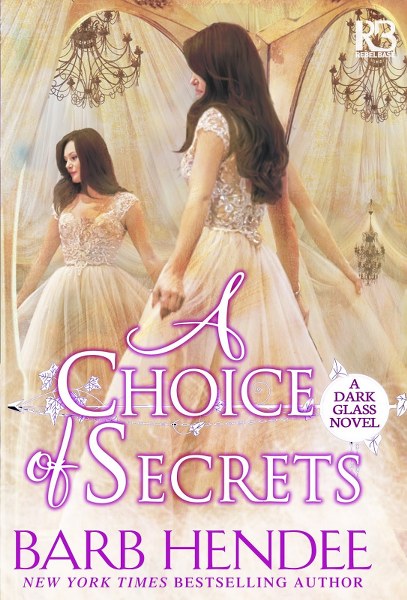


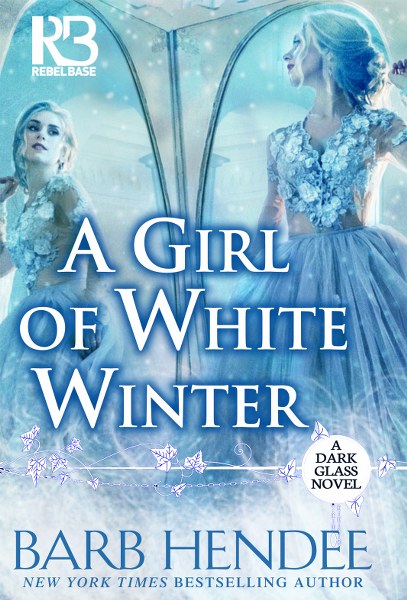
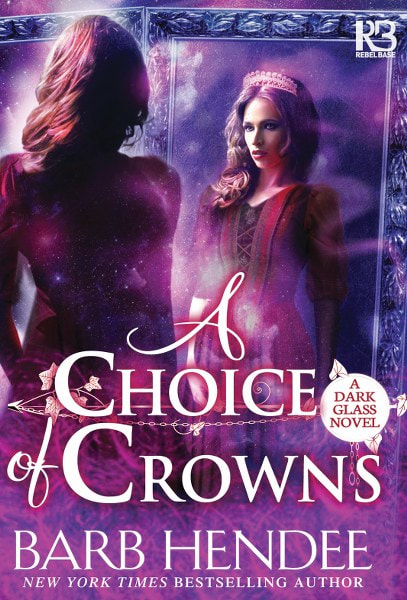
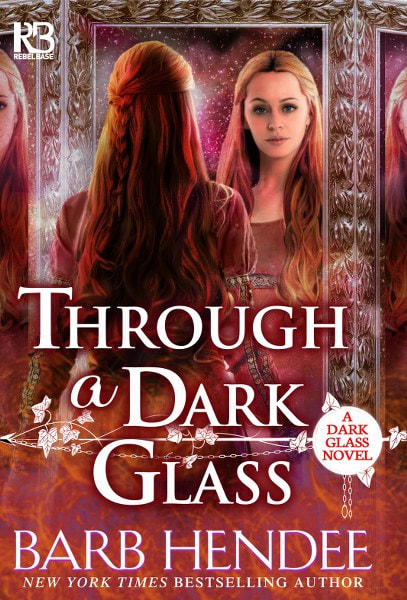

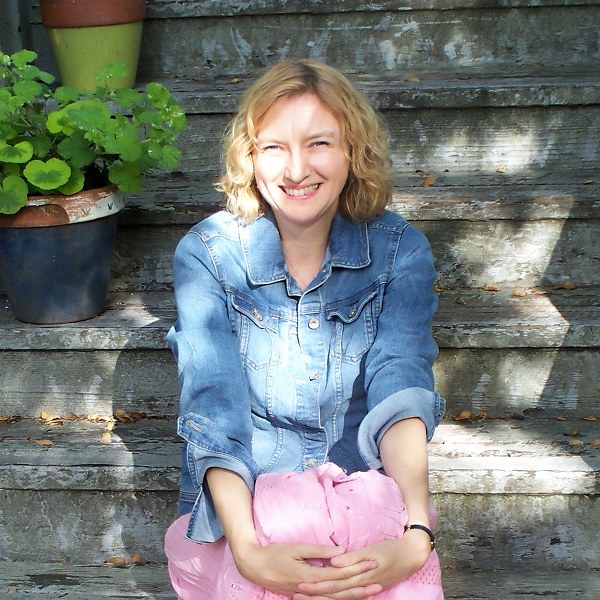


No comments:
Post a Comment